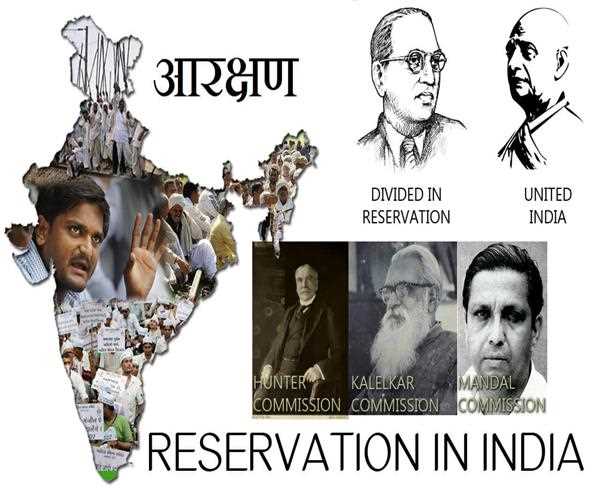
17-Jul-2024 , Updated on 7/17/2024 11:29:43 PM
Why reservation still exists in India?
The introduction of reservation in India aims to combat discrimination against specific disadvantaged sections of society by providing a means to uplift them.
The primary purpose of reservation in India is to uplift sections of society that have suffered from injustice and disadvantages, particularly based on caste divisions with historical roots
Reservation includes categories such as Caste Based, Women, Elderly People, Economically Weak, Religious Minorities, and the Physically Challenged. It can used as a protective measure for groups that have been marginalized for many years. India has implemented reservations for these categories in education, employment, and economic opportunities.
However, the percentage of reservations across various fields has steadily increased from 1965 to 2021, and the reservation period has been extended to 2030, indicating that it will continue for at least another decade.
Despite the longstanding implementation of reservation, the fact that India still needs reservations to uplift its people suggests that the policies have not fully addressed the underlying issues.
Reservation has enabled many individuals from these groups to advance and secure prominent positions in India's top-tier jobs. It has facilitated the advancement of minorities and has improved the educational and social standing of discriminated sections. In conclusion, reservation has effectively acted as a tool to address inequity.
Yet, the question arises about how long this reservation criterion should continue. Despite its benefits, reservation also creates a divide among social groups. This is particularly evident in the case of surname reservation, which has led to discrimination against the upper class and perpetuated the caste system.
The Supreme Court has ruled that individuals with reserved surnames can still qualify for positions in the open category if they meet the requirements. However, this reservation policy may seem unfair to those competing in the open category every year.
To address this, there is a concept called the creamy layer, which aims to ensure that the benefits of reservation reach those who truly need it. If this is the case, why is there a specific focus on caste-based reservations? Maybe it should be combined with the Economically Weaker Section or Economically Backward Class.
There is still a section of society facing injustice and remaining in the shadows today. This might be because they lack representation and those who have not experienced injustice comfortably benefit from caste-based reservation policies. The data needs to be re-evaluated, especially concerning those belonging to the Dalit community.
In India, reservation has often been used as a political tool to gain votes. It seems to benefit politicians more than the people in need, as it is frequently used to secure votes in the name of helping or uplifting them. This is why, even after 74 years of independence, reservation policies are still in place.
Read More: DIVIDED INDIA - POVERTY VS RESERVATION

Student
Economics can be broken down into microeconomics, which looks at individual decisions, and macroeconomics, which is concerned with the economy as a whole. Both types of economics utilize historical trends and current conditions to inform business decision-making and make predictions about how markets might behave in the future. Students who choose to study economics not only gain the skills needed to understand complex markets but come away with strong analytical and problem-solving skills.
Join Our Newsletter
Subscribe to our newsletter to receive emails about new views posts, releases and updates.
Copyright 2010 - 2026 MindStick Software Pvt. Ltd. All Rights Reserved Privacy Policy | Terms & Conditions | Cookie Policy